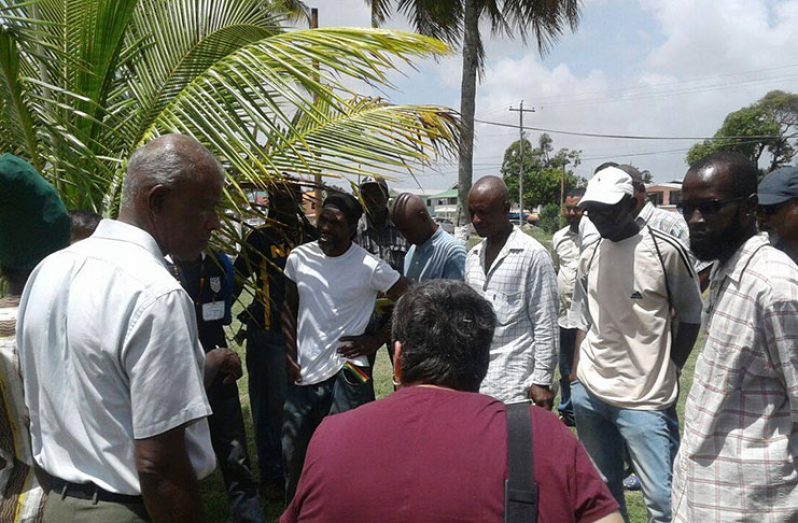– with regular training on vagaries of the industry
AS the local coconut industry continues to expand, agricultural institutions are ensuring that farmers are not left behind by sensitising them about the bottlenecks in the industry, and how to increase their productivity.
Some of the institutions that have pioneered the training process are the National Agricultural Research and extension Institute (NAREI) and Caribbean Agricultural Research and Development Institute (CARDI).
According to a press statement from NAREI, several coconut farmers have benefitted from training to identify and select quality mother palms and nuts, select seedlings and prepare a nursery.
Owing to NAREI’s in-house research on coconut production, the training was held at the institute’s Mon Repos location. The facilitators utilised coconut palms and fallen nuts, as well as the nursery as training tools.
As NAREI’s Dr Oudho Homenauth once told the Guyana Chronicle:
“The industry continues to make leaps and bounds as we continue to develop the roadmap which was introduced in 2016. The roadmap for the coconut industry was a joint effort of both the public and private sectors and has been adopted by the Ministry of Agriculture.”
He was also quoted by the paper as saying that based on a survey, the coconut continues to be our major non-traditional export; exports which amount to some US$5M annually.
He’s also reported that coconut water is now being exported in larger quantities to the Caribbean by Henvil farms and Essequibo farmer, Alfro Alfonso, and that the rooster brand, a recent addition to the local market, the hydrate and other varieties of water are very popular locally.
According to the report, Dr Homenauth had indicated that while it was projected that 5,000 acres of land would have been cultivated with coconuts by 2020, it was anticipated that that amount will be surpassed.
“There is an increasing demand for planting materials,” he said. “As such, nurseries have been established at Mon Repos, Wakenaam, Charity and Hope Estate.
“These have the capacity to produce 50, 000 seedlings annually, and satisfy about 800 acres annually. Private farmers have also begun their own seedling production.”


.jpg)











